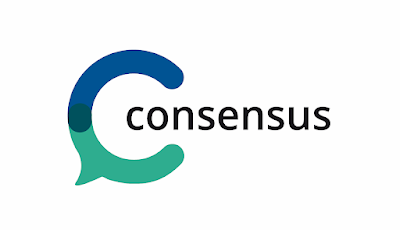Every individual goes through different phases in life that teach them a lot about themselves and also make them aware of the environment around them. These subtle phases or changes make people who they are and they will continue...
Every individual goes through different phases in life that teach them a lot about themselves and also make them aware of the environment around them. These subtle phases or changes make people who they are and they will continue to grow and grasp on new revelations about themselves and their surroundings as they go in life.
Executive leadership coaching takes the aforementioned natural changes and harnesses them as a tool for personal development where leaders can better themselves and their skills, but also strengthen their business and the people working for them.
These leadership coaching skills when imparted on the incumbent, have far-reaching benefits for leaders and their employees, and once the leader is equipped with the knowledge to improve and develop, their companies and organizations follow suit.
Executive leadership coaching can be perceived as developing and improving skills to aid career growth, but the implications of such coaching are far more beneficial than just individual growth. The positive effect of great leadership can be felt throughout the organization and leadership skills and business success and its goals are linked very closely together.
 Leadership coaching
Leadership coachingLet us have a deeper look into what executive leadership coaching can do for leaders and businesses.
Understanding Executive Leadership Coaching
To break it down to its simplest form, executive coaching is fostering crucial skills that can aid leaders in acquiring personality traits and habits that go with the position. It is a form of professional training but far more complex because it urges people who are in power to become effective leaders while they change the foundations of the company to be more lucrative, healthy, and happier.
Leadership coaching for higher performance is one thing, but the purpose of the coaching far exceeds only performance because it triggers self-awareness on a deep level, which leads to confidence and that leads to adapting to any situation like a leader should.
Other benefits of executive leadership coaching include quintessential leadership skills that are necessary to run the company and when the company is doing well, the credit goes to the leadership and that in return earn the respect of others.
Apart from self-development, let’s take a look at how a self-aware and confident executive can help the business as a whole.
Challenging Weaknesses and Harnessing Strengths
Executive leadership coaching can help you take a deeper look at yourself. That means in different phases of life you acquired new skills, strengths, and a different outlook on life, but along the way you probably forgot about what makes you, you! This is where the coaching helps to make you understand what you’re good at, and what exactly you can work to improve on.
These subtle hints at identifying yourself are what truly executive leadership coaching is all about.
The heavy emphasis on the concept of self-awareness is what leads to identifying where improvement is necessary, and this can happen both at the individual level and as well as business level, but to trigger this movement the individual has to identify within themselves to make these external changes. This is what executive leadership coaching allows individuals to realize – their hidden potential and materialize it into actions that form the true personification of a leader.

Goal Setting Capabilities
Being in the executive role of any organization or business, goal setting is the fundamental criteria for growth and since executives set objectives to set the bar high, it is merely a routine thing for any executive to do. However, executive leadership coaching takes it a level up from just setting goals to setting meaningful, specific, achievable, measurable, and time-bound goals that are personal as well as business-driven.
The aforementioned goal setting provides an executive a unified direction both for themselves and the business which is not vague. These goals are achievable and allow the leader of the organization to plan them carefully keeping in mind the resources and capacity of the organization.
Lack of direction is what most small-medium businesses and startups suffer from, and this happens when the executive leadership does not have a unified direction. Setting and achieving these goals can also fulfill personal milestones for executives and can give them much-needed confidence to aim higher.
This confidence in the leadership can be felt by employees as well and can be crucial for employee retention and satisfaction. A clear direction and transparency are what a true leader can project to their employees and when they sell the vision as it is supposed to then everyone works in harmony to achieve those highly defines goals.
All of this can be achieved through leadership coaching and mentoring and a stark contrast can be seen in how a coached leader steers the ship compared to an un-coached leader.
Confident Leadership
When leaders are self-assured, they make confident decisions that reflect on their employees, who then start to believe in the vision of the company.
When leaders are open and willing to take leadership coaching, they are not even empowering themselves, but their employees as well. Confidence commands respect, and employees who trust the leadership of the company also feel confident in achieving success.

Executives constantly have to address their employees and if an executive struggles with public speaking then town hall meetings can be a disaster and if they second-guess their decisions, their employees can sense it. These doubts and anxieties need to be addressed and executive leadership coaching can provide executives with relevant techniques to overcome these shortcomings.
Improving Company Culture
Executive leadership coaching might be perceived as an individualised service, but if a leader is confident and promotes positive actions then it trickles down to the company itself and fosters a better company culture.
Most people in America leave or resign their jobs by choice, and better company culture is seen as a way to boost retention which can help a company retain their brilliant minds and can be utilized to achieve highly defined goals to attain success.












